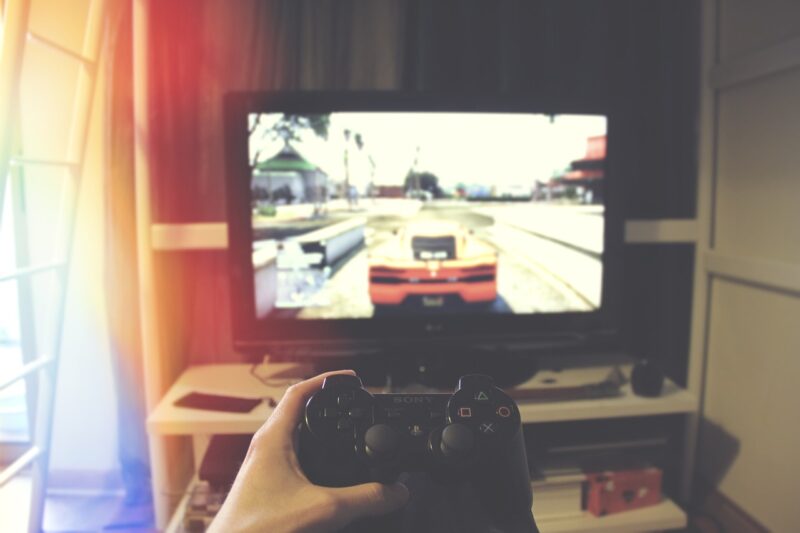The Psychology of Multiplayer Games: Friendships Forged in Battle
November 19, 2024

In an age where digital interactions surpass traditional in-person encounters, multiplayer games have emerged as a unique social medium. They allow gamers to connect across the globe, forming not just temporary alliances but often lasting friendships. This article delves into how multiplayer games foster social bonds, the psychological benefits of gaming together, and why these virtual communities are crucial in today’s fast-paced world.
1. The Rise of Multiplayer Gaming
Multiplayer gaming has evolved from local co-op experiences to expansive online realms where thousands can interact simultaneously. Titles such as “World of Warcraft”, “Fortnite”, and “League of Legends” have led this transformation, allowing players to not only compete but collaborate.
This genre’s incredible growth reflects shifting societal norms toward digital socialization. Social media platforms and forums have further promoted multiplayer games, enabling friendships to form outside the confines of gameplay.
2. The Psychology Behind Multiplayer Games
Understanding multiplayer gaming’s psychological impact requires a dive into key concepts:
Social Interaction
Multiplayer games create rich environments where players must depend on one another. This communal play necessitates teamwork, communication, and strategizing. As gamers collaborate to overcome challenges, they navigate intricate social interactions akin to real-life scenarios. The shared struggles and victories forge bonds that often extend beyond the game itself.
Shared Experiences
Shared experiences in multiplayer settings can foster a strong sense of camaraderie. Players celebrate achievements together; whether achieving a hard-fought victory or navigating a defeat serves as a catalyst for deeper connections. These experiences resonate, creating memories that solidify friendships.
Community and Belonging
The sense of community is amplified in multiplayer games. Players often form or join clans, guilds, or teams based on shared interests or skills, similar to clubs in real life. This community aspect taps into the psychological need for belonging, where players feel valued and recognized within their groups.
3. Benefits of Multiplayer Gaming Friendships
Not only do multiplayer games create friendships, but they also have profound psychological benefits for individuals.
Improved Mental Health
Studies have shown that individuals who engage in multiplayer games report lower levels of depression and anxiety. The social interactions fostered in these games create support networks, helping players cope with everyday stressors. A sense of belonging can alleviate feelings of loneliness and isolation.
Enhanced Communication Skills
Working as a team and communicating effectively is vital for success in multiplayer games. Frequent interactions help develop verbal and non-verbal communication skills that can be beneficial in professional and personal life.
Teamwork and Cooperation
Multiplayer games teach essential skills in teamwork and cooperation. Players quickly learn to value different roles within a team, much like in everyday life scenarios. These interactions build collaboration skills that are transferable to real-world applications.
4. Challenges and Risks
While the positive aspects are numerous, it’s essential to acknowledge potential risks associated with multiplayer gaming and friendships:
Toxic Environments
Certain multiplayer platforms fall victim to toxic behavior, such as harassment and bullying. These negative interactions can significantly impact mental well-being and deter players from engaging positively.
Dependency on Virtual Relationships
Some individuals may rely too heavily on virtual friendships, leading to neglect of real-world relationships. Balancing time spent in-game with real-life social interactions is crucial for maintaining healthy relationships.
5. The Future of Multiplayer Games and Relationships
The future looks promising as technology continues to advance. Innovations including virtual reality (VR) and augmented reality (AR) are set to revolutionize multiplayer gaming experiences by fostering even more immersive social interactions. These evolving environments will deepen connections and enhance the unique bond between players.
The idea of friends forged in battle will continue to thrive, as multiplayer games evolve from mere entertainment to a powerful tool for social connection. As society increasingly shifts toward online interactions, embracing the connections formed in the gaming realm is vital.
Conclusion
Multiplayer games represent more than just entertainment—they are dynamic platforms promoting social engagement and lasting friendships. While challenges exist, the psychological benefits, from improved mental health to enhanced teamwork, underscore the valuable role multiplayer games play in modern society. As we venture further into this digital age, acknowledging and fostering these connections will be paramount.
Ultimately, the friendships and communities that formed in the heat of battle often leave lasting impacts, bridging gaps in diverse social landscapes. As the landscape of gaming evolves, so too will the opportunities for forging meaningful connections amidst the excitement of gaming adventures.







